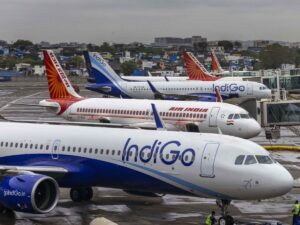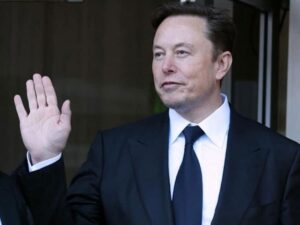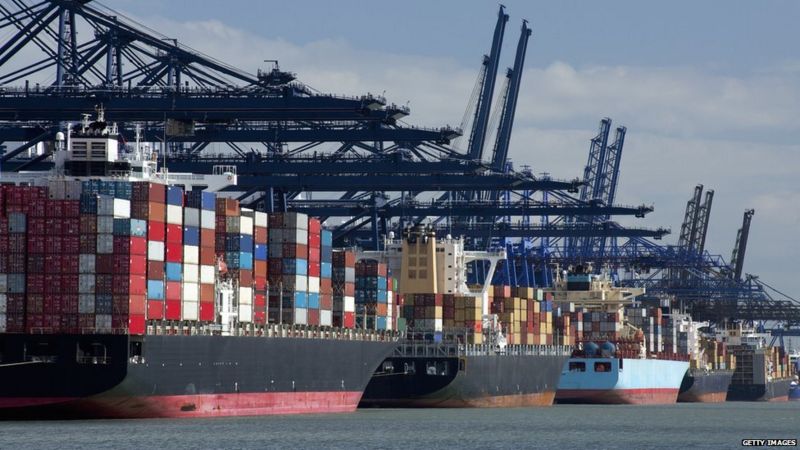
In the year 2001, there were two such incidents, which shook the axis of the world.
On the one hand, the world was engrossed in its reaction to the 9/11 attacks. On the other hand, just three months after this, on December 11, the World Trade Organization (WTO) was at the center of an event that was going to have an impact on the whole world in the 21st century.
Despite this, very few know that something like this happened. The matter of knowing the date is a far cry.
The joining of China in the WTO changed the game of most countries of America, Europe and Asia. Not only this, things changed for every country with precious resources like oil and metals.
The economic and geopolitical importance of this event was very high, but the common people did not pay attention to it. This imbalance was at the root of the global financial recession that the world saw. The domestic discontent in the G-7 countries over the transfer of production jobs to China also caused political damage.

- American hopes failed
Leaders such as former US President Bill Clinton promised that sending “economic freedom, one of the most tangible values of democracy” to China, would lead to the world’s most populous country on the path of political freedom.
Clinton said, “When people have the freedom not only to dream, but also to fulfill their dreams, then they would like to be heard.”
But this policy failed. China started moving rapidly towards its current situation. China is currently the second largest economy in the world and is set to become the largest economy in the world.
US trade representative Charlene Barshefsky, who played a role in the decision to include China in the WTO, recently told a Washington International Trade Association panel that China’s economic model somewhat defies the Western idea that ‘you An innovative society cannot be created under political control.
He said, “It is not meant to say that China’s innovation capacity has been strengthened by its economic model. What it means to say is that the system that Western countries considered to be inconsistent was not, in fact, an incompatible system.”
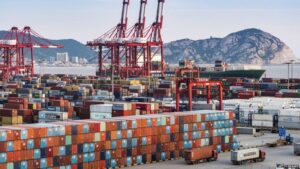
- China’s all-round progress
Before the year 2000, China was recognized as a major producer of various plastic items and cheap goods. These things were necessary but neither were they changing the world nor could you defeat the world with them.
The rise of China in the list of world businesses has brought about a major global change. The Chinese population willing to work and the super high tech factories and the special relationship between the Chinese government and Western multinationals created such a powerful alliance that the face of the world changed.
China gradually became a part of the supply chain of the world’s largest companies. China had an army of cheap laborers who were producing everything necessary for the high standard of living of the West. Economists call this a supply shock, and its impact is undoubtedly shocking. Its effect is still visible all over the world today.
China’s inclusion in the world economy has achieved many great economic achievements, including lifting a large population out of poverty. Before China joined the WTO, the country’s 500 million population was below the poverty line. Talking about today, it is zero because during this period the economy of the country has increased 12 times. China’s foreign exchange reserves have increased 16 times to $ 2.3 trillion.
In the year 2000, China was at number seven in the world in import of products but soon it reached number one. The rate of economic growth in China is currently 8 percent annually, but at one point it reached 14 percent, while last year it stagnated at 15 percent.
Container ships are the backbone of global trade. In joining the WTO, the number of containers going to and from China increased from 40 million to 80 million. Whereas in the year 2011, a decade after China joined the WTO, the number of containers coming from China had increased three-fold to exceed 120 million.
Last year this number was 24.5 crore. While half the containers arriving in China were empty, all the containers leaving China were full of goods.
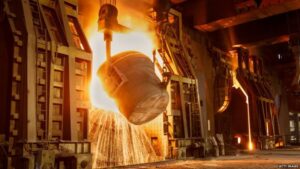
- Infrastructure also changed
China’s highway network has also grown rapidly. In 1997, there were 4700 km of highways in China, which have increased to 161000 km in 2020. China now has the longest highway network in the world. In China, 99 percent of the cities with a population of more than two lakhs are now connected by highway.
Along with this advanced infrastructure, China also needs metals, fuel, and minerals to increase production. Steel is essential to China’s rapidly growing automobile and electrical appliance industry. In 2005, China became the first exporter of steel and now China is the largest steel exporter in the world.
In the 1990s, China produced 100 million tonnes of steel annually. After becoming a member of the WTO, China had reached 700 million tonnes of steel production in the year 2012 and in the year 2020, China crossed the 100 million tonnes mark.
China currently produces 57 percent of the steel production in the world and now China alone is producing as much steel as the whole world used to produce in the year 2001. China has done the same in the case of ceramic tiles and many other products used in the industry.
China is also the world’s leading source of supply for electronics, clothing, toys and furniture, and China has forced producers around the world to reduce prices.
Economists reported a surprising fall in the prices of products after China joined the WTO.
China’s clothing exports doubled between 2000 and 2005, and China’s share of global trade rose from fifth to third during this period.
After 2005, production quotas in the textile sector were removed and China’s share increased even more. However, production in developing countries like Bangladesh and Vietnam started increasing due to costly production in China, and China’s share reached 32 percent last year.
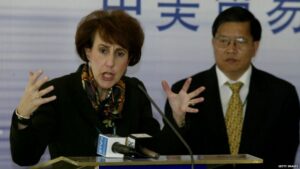
- ‘It was not his mistake to include China’
Highlighting the past two decades, Minister Log Yongtu, who was responsible for China’s joining the WTO, acknowledged that, “I do not believe that China’s inclusion in the WTO was a historical mistake (of the US and Western countries), although I I agree that its benefits are high and low. The whole picture is that when China was developing its own, then the world was also getting a big export market.
Long Yongtu said, “When the distribution of wealth is not equal, then governments should correct that division through domestic policies. But this is not easy to do.”
“It may be easier to blame others, but I don’t believe that blaming others solves the problem. In the absence of China, America’s manufacturing industry will go to Mexico,” he said.
He then cited the example of a Chinese glass producer who struggled to open a factory in the US. He said, “It was very difficult for him to find a rival worker there. He told me that the stomach of American workers is bigger than mine.”
Now turning around, the matter has come there again. China has achieved significant success within the WTO. Right now, the Biden administration is in no hurry to change the policies of the previous administration’s obstructionist.
China was seen as the workshop of the West, but China has used its WTO membership to achieve much more.
For example, China has forged alliances that will provide it with the rare earth materials (natural resources that are not readily available) needed to produce net zero climate change.
China has spread its industry all over the world and the Chinese government is standing behind it. America is trying to stop China diplomatically and economically and for this it is forming alliances in Asia and Europe.
As Barshefsky, former US business representative, puts it, “China has been following this very different path for some time. What does that mean? Strengthening of a nation-centered economic model.”
In this, heavy subsidies are given to the specified industries. China is emerging as a superpower and becoming the leader of this new era, which it calls the Fourth Industrial Revolution. There’s a lot to handle here. The WTO can’t handle that much.”
Now 20 years later, such a decision has changed the world, which was not given much attention. This has proved to be a big success for China. The geopolitical strategy of Western countries has failed.
From an economic point of view, western countries are becoming like China due to this decision.


